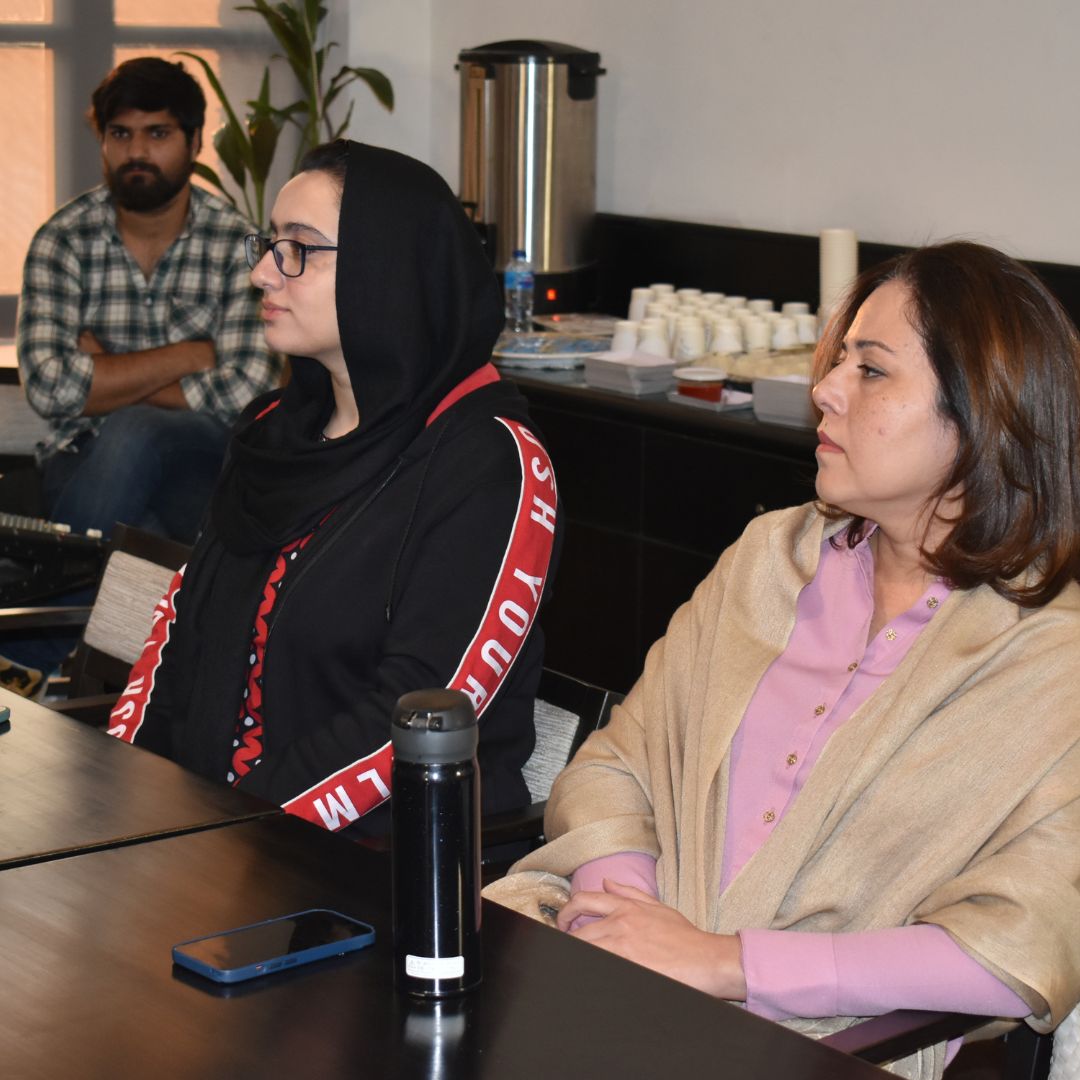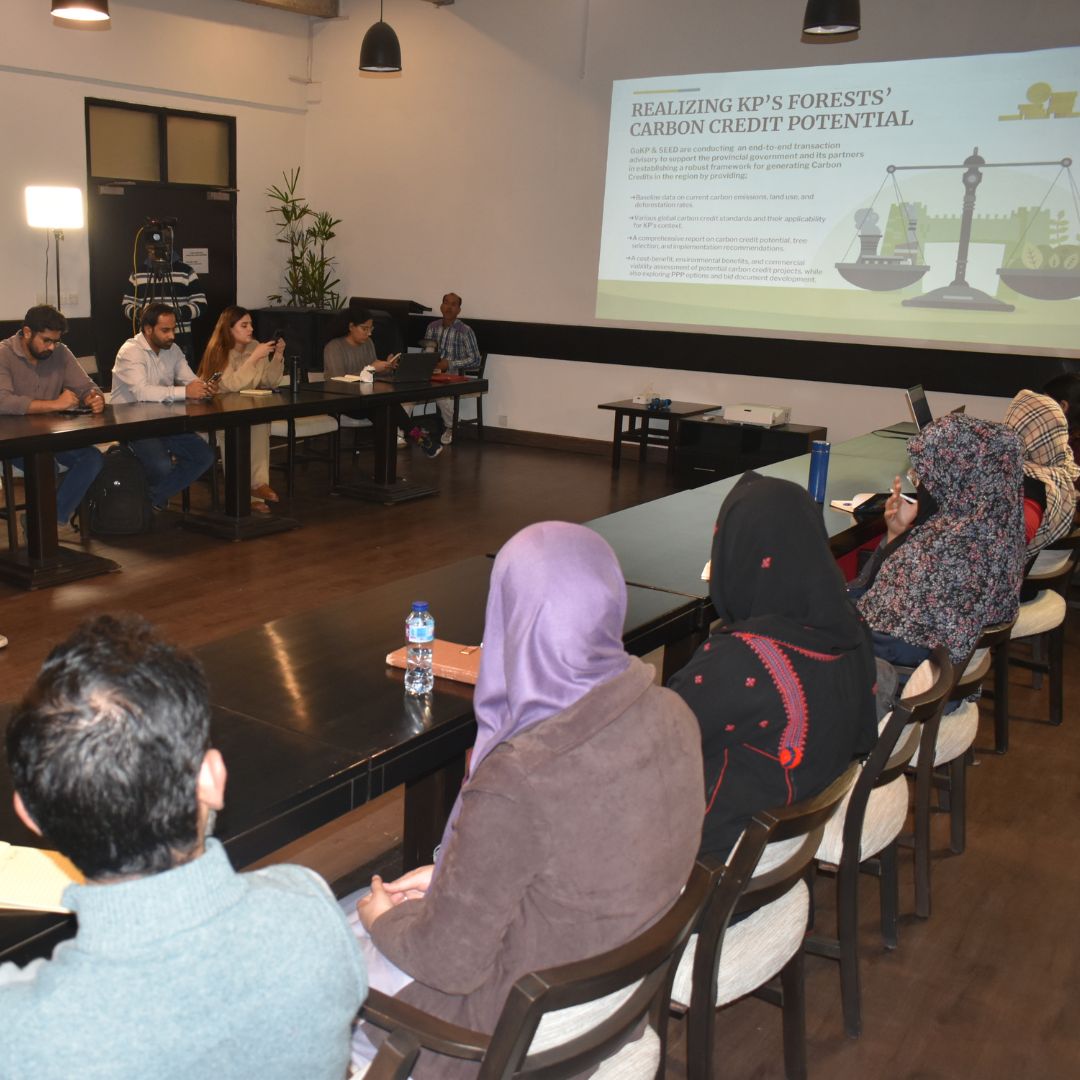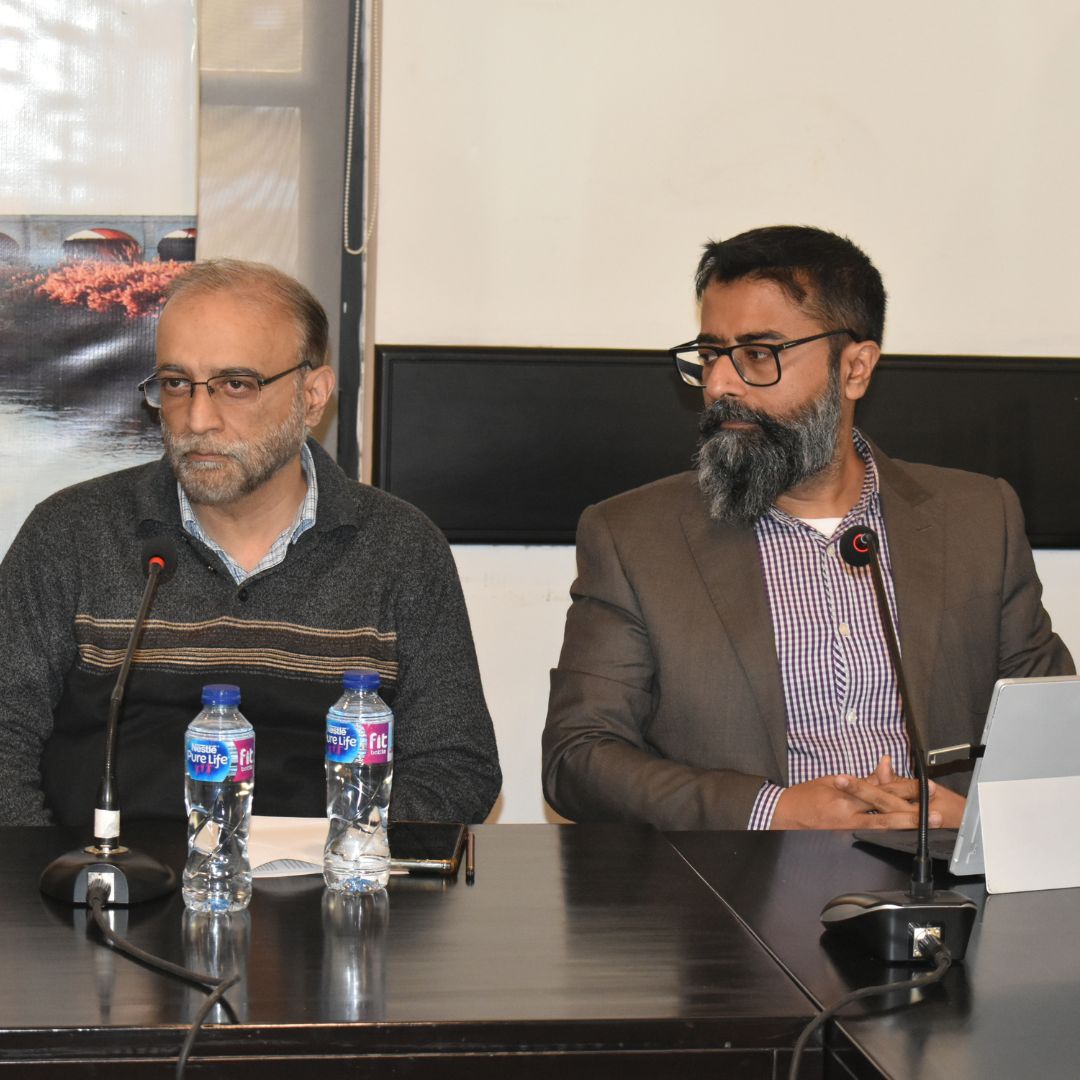Climate Resilient Infrastructure Planning in Pakistan
The discussion aims to highlight the urgency of using data to incorporate climate resilience in infrastructure planning. There is a significant need for a paradigm shift in how public projects are planned and developed, emphasizing the shift towards planning based on climate predictive projections rather than past trends. Predictive models generate evidence for policy making, leading to more informed decisions that will aid in sustainable and resilient development, safeguard communities, and ensure sustainable development in regions facing severe climate risks.
The primary goal of this event is to highlight and present SEED’s climate resilient infrastructure planning, design and execution in Khyber Pakhtunkhwa and lessons learnt. By sharing SEED’s experience in KP, this event will aim to learn and engage with a diverse audience, including academics and sector experts.
This talk is part of the Political Economy of Development Series at MHRC.
Climate Resilient Infrastructure Planning in Pakistan
Panelists: Dr. Omar Mukhtar (SEED), Dr. Syed M. Ali (University of Engineering and Technology, Peshawar/SEED), Dr. Syed M. Hasan (LUMS), Dr. Momin Uppal (LUMS) and Taimur Khan (SEED)
Moderator: Nimra Ejaz (SEED)
Date: 15th February 2024
Time: 5:00 - 7:00 PM
Where: VC Lounge, First Floor, (Main Entrance Academic Block, LUMS.)
Limited seats are available for this event.
Register using this form to guarantee a spot.
Dr. Omar Mukhtar (Panelist):
Dr. Omar Mukhtar is the Team Leader of the FCDO-funded Sustainable Energy & Economic Development (SEED) Programme in KP. He is an experienced Governance Advisor with a demonstrated history of working in the international development sector and has worked with Department for International Development (now FCDO) for over eight years. He has extensive networks with international donor organizations and is skilled in reforms encompassing sectors like economic growth, climate resilience and finance, public financial management and taxation besides reforms in education and health sector. He has previously worked for Customs, VAT and planning ministries.
Omar has done his Master's in Public Administration from Harvard Kennedy School. Omar is also an alumnus of International Anti-Corruption Academy Vienna and has done consulting assignments in various countries, including the United Kingdom, Austria, Slovenia, Tanzania, and Ukraine. He also writes frequently on public policy issues, including climate change and public sector reforms. Trekking and exploring Pakistan is a passion for Omar, and he has written extensively on sustainable tourism and heritage.
Dr. Syed M. Ali (Panelist):
Dr. Syed M. Ali is a World Bank’s GFDRR Hosuner fellow with 26 years of professional experience in teaching, research & consulting. He is professor of Civil Engineering at UET Peshawar and Lead Technical Advisor of SEED. Dr. Ali established and remained director of largest Earthquake Engineering Center of Pakistan for 11 years. He worked on national policy formulation by contributing to the development of three engineering codes and advises government on complex technical issues. He specializes in climate & earthquake resilient infrastructure planning, design, and testing. Dr. Ali has worked on numerous mega projects like Orange Line Lahore, Karot Hydropower Project, ML-1 (Pak Railway), M-2 rehabilitation project etc. He is also the pioneer of Qualification Testing of infrastructure in Pakistan.
Dr. Syed M. Hasan (Panelist):
Dr. Syed M. Hasan is Associate Professor in the Department of Economics, LUMS. His primary research interest and teaching field is urban and regional economics and public economics. Dr. Hasan obtained his PhD in Economics from Ohio State University in 2014. His doctoral research focused on spatial policy instruments and firm’s productivity. Under the broad theme of sustainable development, Dr. Hasan also has interest in research on resilient cities. In this context his research focuses on areas related to water conservation, economic cost of congestion and energy choices by households and related carbon emissions in large urban centers of Pakistan. Dr. Hasan has several publications in international peer-reviewed journals. In 2007 he did he master’s in public finance from GRIPS, Tokyo, Japan. Prior to joining the academia, Dr. Hasan has worked in the civil service of Pakistan.
Dr. Momin Uppal (Panelist):
Dr. Momin Uppal is a tenured Associate Professor of Electrical Engineering at Lahore University of Management Sciences. He received his PhD and MS in Electrical Engineering from Texas A&M University in 2010 and 2006, respectively. Earlier, he received his BS in Electronic Engineering with highest distinction from GIK Institute of Engineering Sciences, Pakistan in 2002. At LUMS, he serves as the director of the Advanced Communications (AdCom) Lab and the Smart Data Systems and Applications (SDSA) Lab. He has published over 50 papers in leading IEEE Journals and Conferences, and has two US patents to his name. During his time at LUMS, he has secured research funding from national and international agencies including Ignite (formerly National ICT R&D Fund), Higher Education Commission of Pakistan, National Instruments, and United Kingdom's Grand Challenges Research Fund (GCRF). His research interests lie in prototyping of novel communication strategies using software defined radios (SDRs), non-orthogonal multiple access, machine learning for wireless communications, back-scatter communications, and environmental sensing using radio signals.
Taimur Khan (Panelist):
As an advisor with over 20 years of experience, Taimur has been providing consulting services in policy reforms, public investment management, evidence-based planning and policy research. Over the past many years, he has worked on many bilateral and multilateral programs where his advisory services include project designing, planning, better management, monitoring and evaluations. He also brings extensive experience of working with the public sector at different levels, where previously, he has worked with both federal and provincial governments in Pakistan.
In SEED, he is currently working as an Institutional Development Advisor, where his work focuses on improving public investment efficiency, investment climate, tech innovation for improving public sector efficiencies and evidence-based planning.
Nimra Ejaz (Moderator):
Nimra has over 4 years of experience in the social and development sector, having worked in health, trade, tourism and public finance management. Prior to SEED, she worked on KP’s Power Sector Business Plan with a leading financial advisory firm. She was an Assistant Manager with Gallup Pakistan, where she undertook projects pertaining to financial & digital inclusion, renewable energy and IT export.
Nimra holds a Bachelor’s in Economics from Lahore University of Management Sciences (LUMS) and enjoys literature, painting and competitive sports, having participated in numerous table tennis tournaments across the country.
Insights from The Event
There is a significant need for a paradigm shift in how public projects are planned and developed, emphasizing the shift towards planning based on climate predictive projections rather than past trends. Predictive models generate evidence for policymaking, leading to more informed decisions that will aid in sustainable and resilient development, safeguard communities, and ensure sustainable development in regions facing severe climate risks.
By bringing together an interdisciplinary panel of experts and academics, the discussion was able to draw on the use of scientific and engineering tools to show the possibilities for climate resilience in Pakistan and also an economics lens that used households as a starting point to assess energy consumption and carbon emissions.
Dr. Syed M. Ali (UET, Peshawar) shared critical insights from Peshawar that need to make their way to mainstream infrastructure policy-making; bridges are supposed to have a life span of at least 75 years but the destruction of a bridge in Besham, built in 1980, and several others due to the 2010 floods show the lack of incorporating climate resilience aspects in infrastructure building.
The importance of temperature changes and climate change predictions was highlighted in the accurate prediction of floods - historical data is not enough. Taimur Khan (SEED) shared that while it took 2000 years for the global average temperatures to climb from 10 to 15 degrees, many areas of Pakistan will have temperatures raised by 5 degrees in only 80 to 90 more years if business as usual continues.
Dr. Momina Uppal (SSE, LUMS) used Geospatial AI to map tree cover in Lahore and show its effects on cooling temperatures. One finding was that scattered smaller tree covers have a stronger impact on overall reduced temperatures.
A rich discussion followed the presentations and highlighted challenges and solutions in moving forward. These included forming effective partnerships among the academic, practitioner, and government bodies to bridge information asymmetries.
Gallery



Mahbub ul Haq Research Centre at LUMS
Postal Address
LUMS
Sector U, DHA
Lahore Cantt, 54792, Pakistan
Office Hours
Mon. to Fri., 8:30 a.m. to 5:00 p.m.

